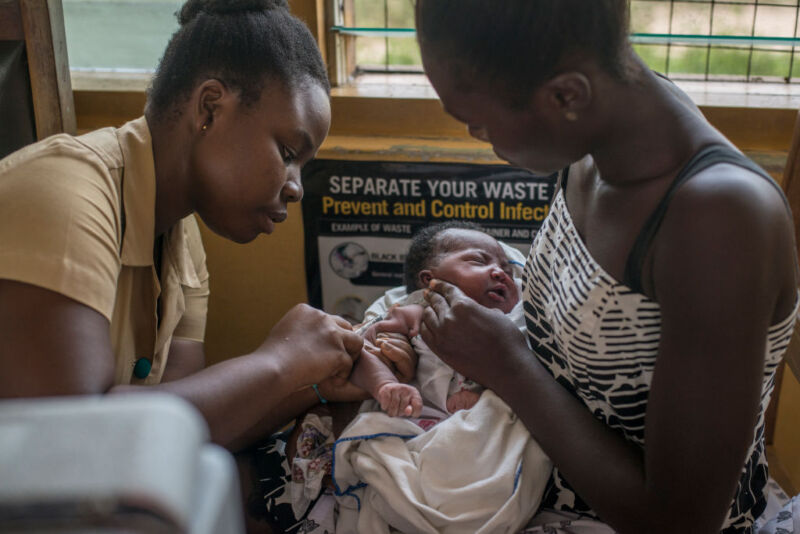
On Wednesday, the World Health Organization (WHO) announced a first: it was recommending a vaccine against malaria for administration to children. The decision follows a program started in 2019 in three African countries, which eventually saw over 800,000 children vaccinated.
The vaccine itself is called RTS,S/AS01 or Mosquirix, and it checks all the boxes for conspiracy theorists, having been developed by a large pharmaceutical company (GlaxoSmithKline) with support from the Gates Foundation. The vaccine is based on proteins found on the surface of the most common malarial parasite, and it requires four doses starting when children are less than a year old. Development of the vaccine started in 1987, and testing of its efficacy dates back to 2014. With over 2.3 million doses administered, it has a solid safety profile, and it has shown an efficacy between 30 and 50 percent in different trials.
That may not seem all that great, especially compared to the numbers we've all watched many of the COVID-19 vaccines produce. But the WHO estimates that over a quarter-million children under the age of 5 die of malaria every year in Africa alone, with many others falling seriously ill. As such, even a 30 percent efficacy can have a substantial impact.
The WHO analysis also considered a number of additional factors, all of which weighed in favor of its use. These include its cost effectiveness and the ability to deliver the vaccine to even difficult-to-reach populations.
Mosquirix's wider distribution, however, will now be dependent on the international health community, which is already struggling with finding the funding and resources to ensure that developing nations get sufficient COVID-19 vaccines.
Meanwhile, there have been some very early trials of additional vaccines that are reporting higher efficacy levels. If those results hold up in larger trials and in actual use in Africa, RTS,S could be just the first in a string of good news for one of humanity's deadlier plagues.
reader comments
69